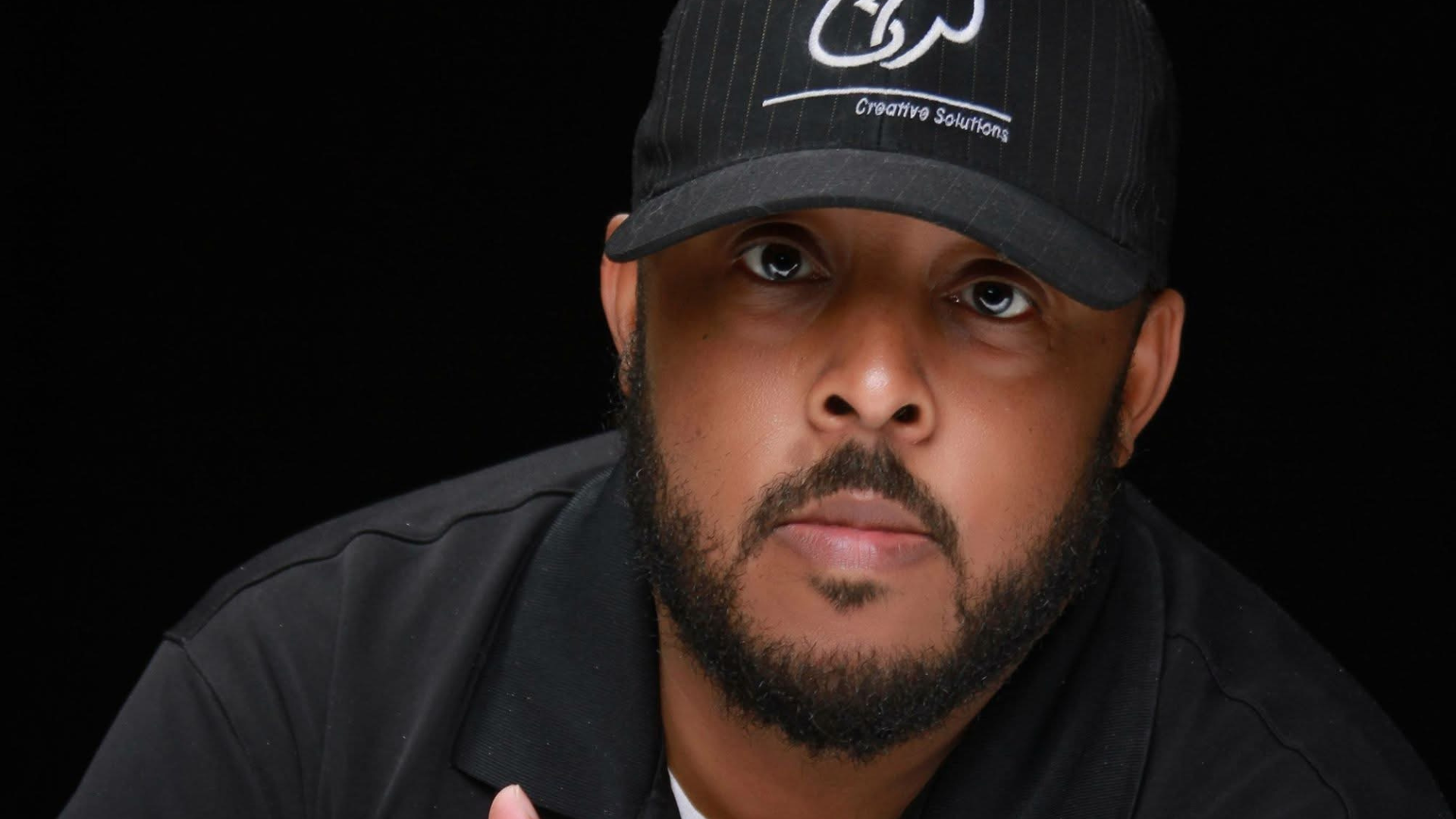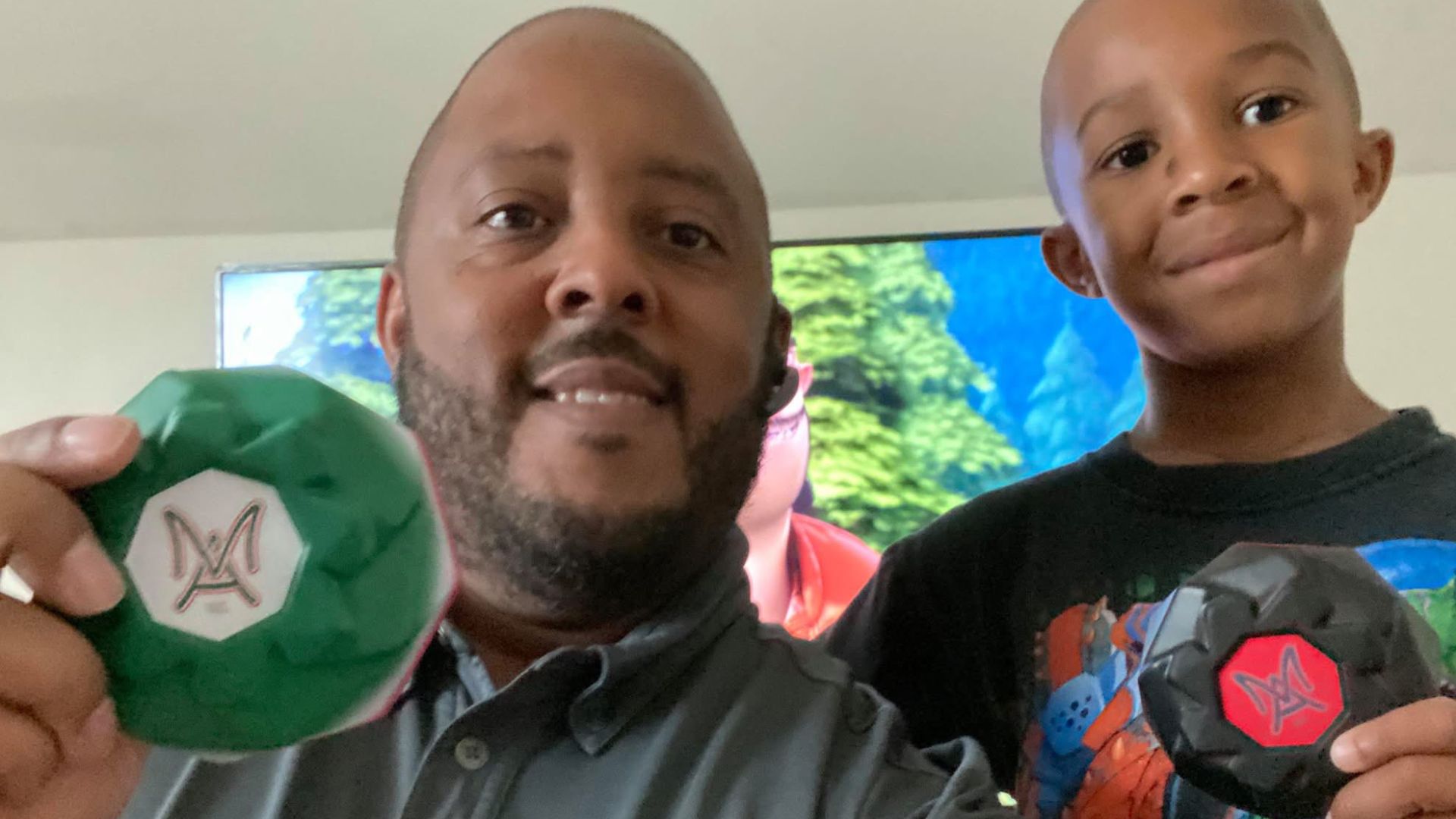
"If you're a small company, you don't have to play small," says Michael "Mouse" Gregory, marketing entrepreneur in the Atlanta area. It's a conviction forged through seventeen years in corporate sales, multiple business launches, difficult seasons, and the kind of resourcefulness that turns constraints into competitive advantages.
But the seed for this philosophy was planted much earlier—in a childhood moment that would shape everything that came next.
Mouse moved from the south side of Chicago to the suburbs and saw, for the first time, the tangible difference resources could make. "When you see that difference between how one side of the world lives and then the other side of the world lives, it attracts you," he reflects. "And you get a chance to see what resources can really afford someone."
That realization planted a question that would follow him throughout his career: What separates those who thrive from those who merely survive? The answer wasn't what business schools teach. It was something more fundamental; the refusal to let limited resources define what's possible.
The Closer's Philosophy
Before Mouse became an entrepreneur, he earned a nickname that would tell you everything you need to know about his approach to business. In high school basketball, they called him "Mighty Mouse" because of what he could do in the fourth quarter. "I would be on the bench for the last six minutes of the fourth quarter, come off the bench, hit six threes in a row," he explains. "Thus the name Mighty Mouse, here he comes to save the day."
There's something revealing in that origin story. He waited, watched the game unfold, then delivered when it mattered most. He was the closer, a role he'd unknowingly play throughout his entire career.
That same instinct showed up in other ways during high school, before he'd even heard of business school or venture capital. Mouse was home one day when a young woman in his neighborhood mentioned she made threaded crosses in different colors. The neighborhood had multiple gang affiliations, each with their own colors. Mouse saw an opportunity.
"I literally had her make some crosses, and I would sell it to the gang members," he recalls. "And then it winds up getting through the school, and I end up selling to just everyday people."
He was learning the fundamentals of merchandising and branding without knowing it. He was connecting supply with demand, creativity with market need. He was creating value from observation and action, skills that would later define his approach to business.
.jpg)
When Resources Define Possibility
After high school, Mouse pursued trade school to study finance. He'd seen what resources looked like on both sides of the tracks. Now he wanted to understand how they moved.
His first job out of trade school was at Verizon in 1999, where he worked in sales and training for 17 years. But Verizon was just the beginning. He was building something more valuable than a paycheck. He was building relationships and learning how successful people thought about money and opportunity.
And when he started Mouse Apparel Inc. in 2011, he didn’t start from zero. He had his mentor's knowledge, his Verizon Rolodex, and years of observing how business actually worked. "I leveraged the relationships that I had from Verizon and called on those executives to say, hey, does your company do this?"
From that network came one of his best clients—someone buying thousands of pieces at a time, spending $50,000 to $60,000 annually on promotional products.
The Underdog's Edge
Mouse Gregory's greatest asset isn't even his business acumen, though that's considerable. It's his refusal to accept that small means powerless.
"You have the same tools as big industry now,” he says. “You can utilize artificial intelligence properly to give you the same results that a big entity can be."
This isn't just theory for Mouse. He's lived on both sides of that equation. He's built businesses with five-figure client bases. He's also built himself back up from challenging financial seasons. Each experience taught him something essential: the size of your operation doesn't determine the size of your thinking.
That's precisely why he launched a second business, Marketing Mouse Trap, in 2024. The platform is designed as what he calls a "systems-as-a-solution" approach to help small business owners automate what larger companies hire entire teams to handle. "Your system can get the same results that you normally get with a salesperson," he explains.
The insight wasn't born from privilege. It came from necessity. When you've had to do five people's jobs alone, you learn how to systematize. When resources are limited, you become creative about efficiency. When you've navigated difficult seasons, you understand the psychology of what people actually need. Often, that's simply permission to think bigger.

The Mentor as a Resource
But maybe the most revealing part of Mouse's philosophy comes through in what he wants to become. His goal isn't just to be a successful entrepreneur. He wants to be a financial resource for others trying to build their own ventures.
He references the movie "Yes Man," where Jim Carrey's character works at a bank making small loans to people with big dreams. "Could you imagine what it would be like if every time you went to a bank there was a person that nobody really knew about that was giving away money?" he asks. "I want to be that person."
His vision is to eventually move to the right side of Robert Kiyosaki's cashflow quadrant—from self-employed to business owner to investor. With those resources, he plans to invest in people who are trying to make the same transition from self-employment to business ownership.
This is where the story circles back. Mouse learned early that resources matter. He's spent his career figuring out how to create, leverage, and maximize them. Now his greatest business aspiration isn't measured in personal wealth. It's measured in the number of people he can help shift from thinking small to refusing to play small.
The Practical Application
So what does this mean for you—whether you're bootstrapping a business, building in a competitive market, or trying to figure out your next move?
First, Mouse's cross-selling story teaches us that you don't need permission to see market opportunities. You need observation and action. He didn't start with capital or credentials. He started with a problem to solve and a willingness to try.
Second, his journey from Verizon employee to entrepreneur shows us the power of building relationships before you need them. Mouse didn't start his business cold. He leveraged years of authentic connections. The lesson isn't transactional networking; it's about being genuinely helpful and present long before you have something to sell.
Third, and maybe most importantly, recognize that scarcity can create clarity. When you've had to do more with less, you develop an instinct for what actually matters. And that instinct doesn't disappear when resources improve. It becomes your competitive advantage.
Mouse Gregory didn't become successful despite his constraints. He became successful because he refused to let them define what was possible. He saw small as an advantage: a chance to move fast, stay close to customers, and build systems that didn't require massive overhead to scale.
The size of your bank account, your client list, or your team doesn't determine the size of your thinking. That's a choice you make every day. And according to Mouse, that choice is the only one that really matters.
-
While others stay stuck in jobs that drain them, join 1000+ professionals finding purpose and building the courage to bet on themselves. Get weekly content, real life stories, and the permission you've been waiting for—delivered straight to your inbox. Your future self will thank you.



